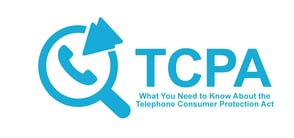What you need to know about the new Telephone Consumer Protection Act
 Understanding the process of school-to-home communications and how TCPA affects your organization is mission-critical to keep your school out of hot water with federal agencies. No matter how the communications are sent, it is important to make sure you are following the guidelines that are set and maintained by TCPA.
Understanding the process of school-to-home communications and how TCPA affects your organization is mission-critical to keep your school out of hot water with federal agencies. No matter how the communications are sent, it is important to make sure you are following the guidelines that are set and maintained by TCPA.
NOTE: The following is not legal advice, and your school should consult its legal counsel in order to assess the risks and set your own standards with regards to the law.
What is the TCPA?
The TCPA was originally passed as an amendment to the Communications Act of 1934 and was designed to restrict telemarketing companies from contacting people without their permission. Over time, abuse and neglect of the guidelines has led to updates being implemented in the Telephone Consumer Protection Act of 1991. A recent update in 2015 prohibits automated dialing devices to call or send pre-recorded messages to a cell phone or service where the subscriber is charged for the call, unless it is an emergency as defined by the TCPA.
Why it matters to you
Phone, sms/text, email and social media are all common and powerful modes of communicating for building school community, keeping parents apprised, notifying parents and staff of changes and notifying the community when there are urgent or emergency situations, such as weather-related events, evacuations or lock-downs.
The problem is, modern telecom systems are complex and, combined with a lack of understanding and vigilance from your staff, it’s easy to find yourself in violation of the law. The result could be your school liable for statutory damages of up to $1,500 if it is proven you are in violation.
In this article, we'll help you understand how to keep and maintain your schools compliance when sending all school-to-home communications.
TCPA 2015 Update
The FCC issued a ruling in the summer of 2015 related to the TCPA. In short, this will apply to you if you’re using;
- Automatic outbound dialers to contact cellphones and other wireless phone numbers
- Delivery systems of pre-recorded messages to landlines or cellphones
- Outbound text message (SMS) marketing campaigns
The ruling clearly;
- Reiterates that consent is required by the “called party,” (i.e. parent, guardian, staff, student) assigned to the number dialed and billed for the call
- Restated that consent is not required for “emergency purposes,” (as defined by the TCPA, i.e. a situation affecting the health and safety of consumers.)
- Restated that all called parties must be able to revoke their consent at any time in any reasonable manner, and that the sender of the message (i.e. school or district) bears the burden of the proof of consent.
For schools and organizations using automated messaging systems like ours, it's important to ensure solid processes for;
- managing opt-in and -outs,
- obtaining consent,
- defining exactly what constitutes and urgent/emergency message under the law,
- keeping consent records up-to-date
The 2015 update is arguably the most significant over all previous updates.
In the past, there was a legal exemption applied for making calls to wireless phone numbers on the grounds there was an Established Business Relationship (EBR) in place. Unfortunately, the legislation means it's no longer valid and prior express permission will be needed. The same rules apply to any informational (i.e. school newsletters, non-urgent communications, etc) pre-recorded message sent to any phone number.
